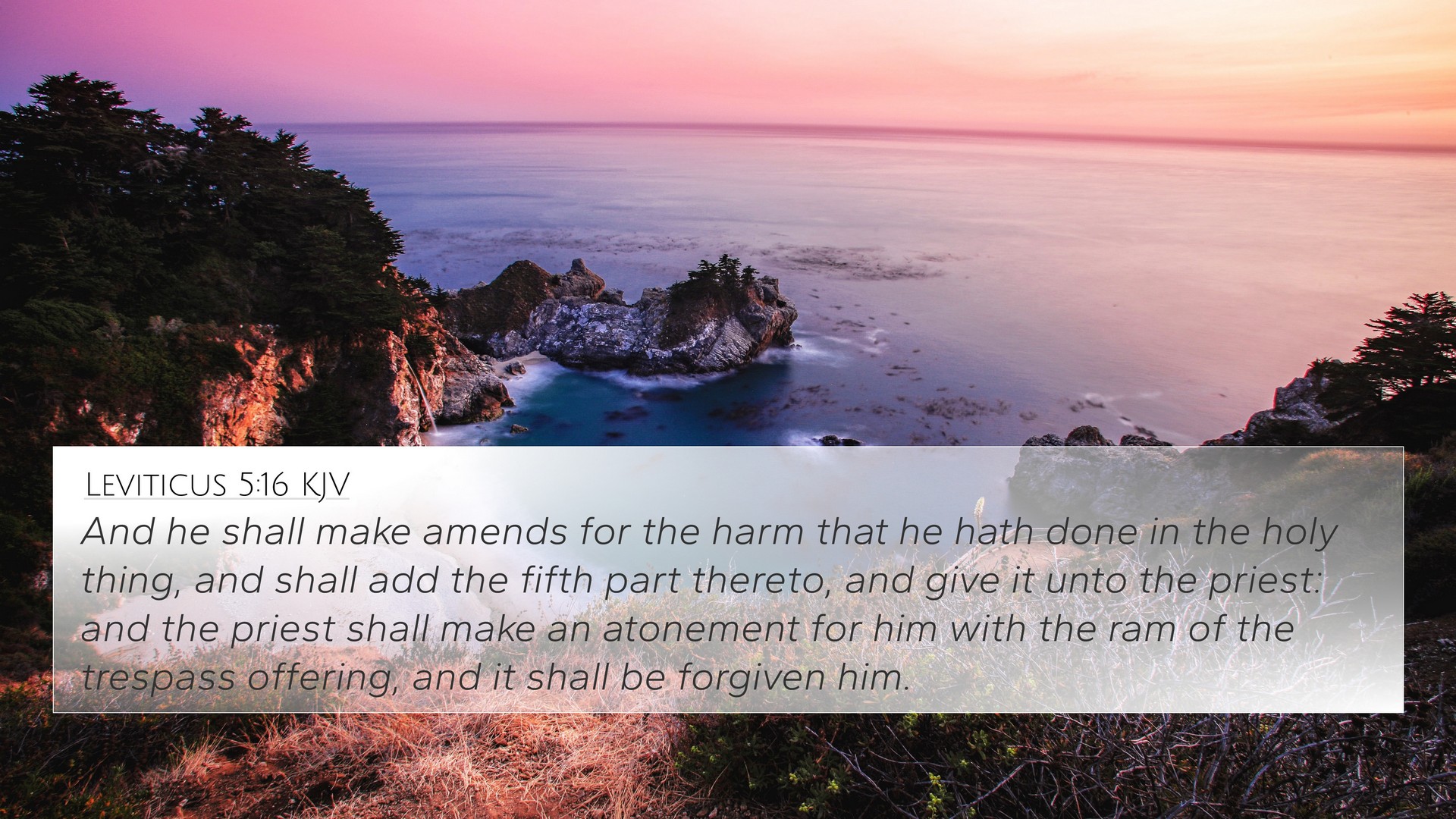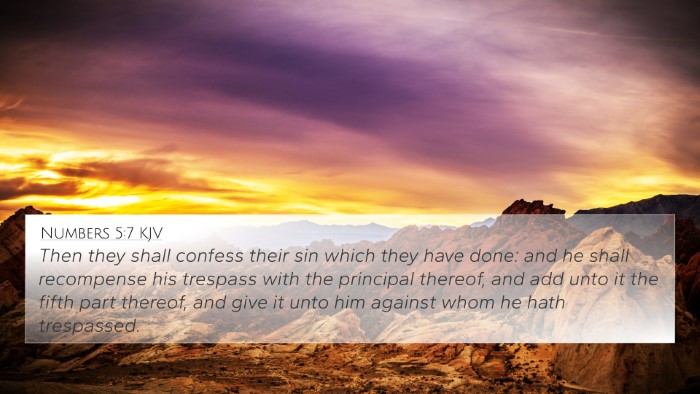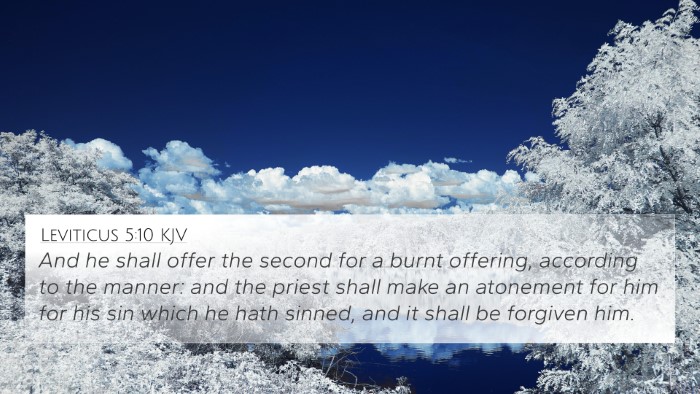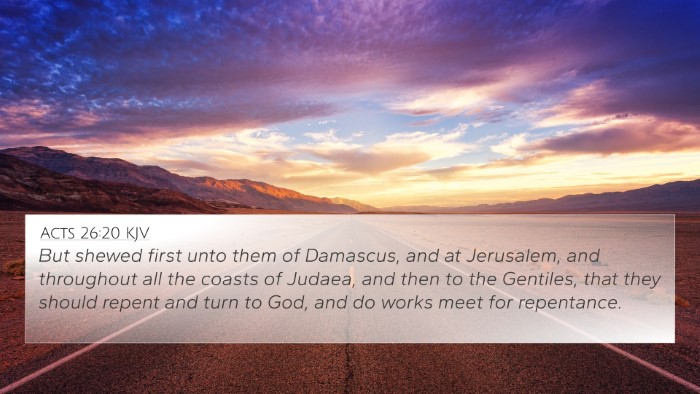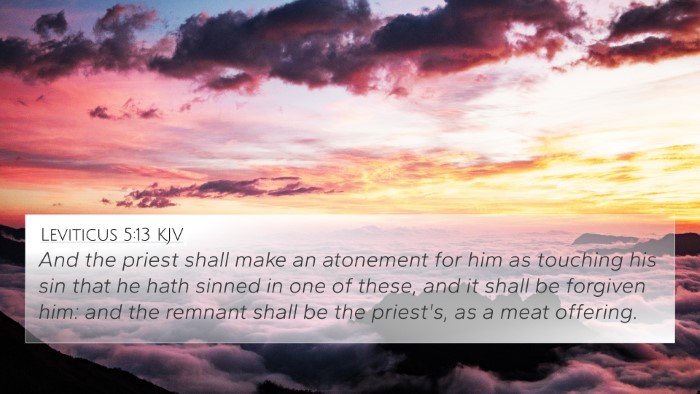Understanding Leviticus 5:16
Leviticus 5:16 states:
"And he shall make restitution for the harm that he has done in the holy thing, and shall add a fifth part to it and give it to the priest. And the priest shall make atonement for him with the ram of the guilt offering, and he shall be forgiven."
This verse addresses the consequences of unintentional sin and the necessary steps for atonement and restitution. It highlights key themes of responsibility, restitution, and the role of the priest in facilitating divine forgiveness.
Commentary Insights
Insights from notable public domain commentators—Matthew Henry, Albert Barnes, and Adam Clarke—further elucidate the meaning of this verse:
Matthew Henry's Commentary
Henry emphasizes that the verse illustrates God's justice. When individuals commit offenses, particularly against sacred things, they are required to make restitution. This restitution not only involves compensating for the damage caused but also exceeding the original loss by adding a fifth part. This additional payment signifies the seriousness of neglecting sacred duties and God's expectations for His people to be diligent in their spiritual obligations.
Albert Barnes' Commentary
Barnes expounds on the idea of unintentional sins and the importance of restitution in the covenant community. He points out that accidental sins still disrupt community harmony and divine order. The requirement of restitution reflects God's mercy, providing a pathway for individuals to correct their misdeeds while restoring their relationship with God through the priest's mediation and atonement.
Adam Clarke's Commentary
Clarke discusses the role of the priest as an intercessor. He highlights that the priest’s involvement is crucial for both restitution and atonement. The ram of the guilt offering represents the substitutionary sacrifice required for the restoration of fellowship with God. Clarke notes that the principle of atonement for sins—whether intentional or unintentional—permeates the entire sacrificial system, illustrating God's provision for human failings.
Key Themes and Connections
The themes derived from Leviticus 5:16 resonate throughout both the Old and New Testaments, demonstrating the continuity of God’s approach to sin, guilt, and restoration.
- Responsibility for Actions: The necessity of restitution indicates a broader biblical principle that individuals are accountable for their actions and must correct wrongs (see Exodus 22:1).
- The Role of the Priest: The involvement of the priest highlights the significance of mediators in both Testaments, paving the way for Christ’s ultimate mediation from the New Testament perspective (see Hebrews 4:14-16).
- Atonement: This verse reflects the sacrificial system that points toward the greater sacrifice of Christ in the New Testament (see 1 Peter 1:18-19).
Cross-References
Leviticus 5:16 can be connected to several other scripture passages that explore similar themes of sin, restitution, and atonement:
- Exodus 22:1 - Discusses restitution for theft.
- Leviticus 6:5 - Outlines further restitution requirements.
- Numbers 5:6-8 - Addresses guilt offerings and restitution to God.
- Isaiah 53:5 - Foretells Christ's suffering for our transgressions.
- Romans 3:23-24 - Allude to universal sinfulness and redemption through grace.
- Hebrews 9:22 - Affirms that without the shedding of blood, there is no forgiveness.
- 1 John 1:9 - Encourages believers to confess sins for forgiveness.
Conclusion: Understanding Biblical Context
Leviticus 5:16 offers profound insights into the dynamics of sin and redemption within the Old Testament ceremonial law, serving as a precursor to New Testament teachings on grace and salvation. The requirements for restitution and atonement reflect God's unchanging nature and His commitment to justice and mercy.
For deeper understanding and study, believers can utilize tools for Bible cross-referencing, such as a Bible concordance or cross-reference Bible study guides. These resources help in identifying connections between these crucial biblical texts and enhance one’s grasp of redemptive themes throughout Scripture.
SEO Keywords Incorporated
- Bible verse cross-references
- Cross-referencing Biblical texts
- Bible cross-reference guide
- Connections between Bible verses
- Bible verses related to guilt and restitution
